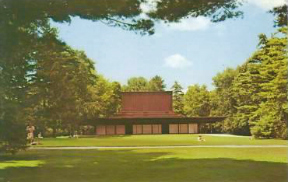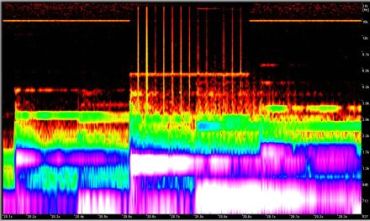Patterns of rising and falling inflection are vital to a lot of music. Purely instrumental music often encodes emphasis-patterns that resemble speech, or song. (Linguists prefer the term "intonation" to signify these rises and falls.) In the notation of European classical music, at least since the 18th century, musicians have used "slurs" as a means of indicating phrase groupings and stress patterns. Describing two notes written under a slur, … [Read more...]
Transaction
When listening to recordings from the 1930s I am fairly certain I don't hear the same thing as someone who listened in the '30s. Even if the sound waves were identical -- I could use a Victrola -- the context is so changed, my reception of the sound so differently influenced that it's different music now. Music is a transaction. When we categorize sound recordings as "music" we may make a misrepresentation. Isn't this sound, these patterns of … [Read more...]
Fixed
"Even the most perfect reproduction of a work of art is lacking in one element: its presence in time and space, its unique existence at the place where it happens to be." -- Walter Benjamin (1936) Our current practice (2013) regarding sound recordings, movies, novels, poems, or images is rooted in old norms of analog reproduction. New art technologies will allow varying surface iteration of an underlying art product. For example, the … [Read more...]
Miraggio
I learned Brahms's Opus 114 quickly -- about ten days from my first encounter with the music to the performance. As a fellow at Tanglewood, I was working on several chamber and ensemble pieces. There were coachings. (Joel Krosnick worked with me and my Brahms colleagues.) The performance went well. There was one place in the last movement when I didn't come in properly -- I played a conspicuously wrong harmony. For years, I avoided listening to … [Read more...]
Case Law
Setting out to learn a piece of scripted classical music, a pianist usually looks at print. Some musicians listen to recordings. A celebrated American violin pedagogue sent her young virtuosos to listen to five or six recordings of a new piece. The kids calculated the speed of each performance with a metronome, averaging the numbers together to determine the right tempo for their own performance -- a focus group for tempo! Other teachers … [Read more...]
I don’t see red
At last, I approved the master for my new CD. After the final round of sound renovations on the trickiest track -- a slow, mostly quiet piece in which some mysterious high frequency sounds were recorded along with the music -- Bob Katz sent me some before and after pictures: BEFORE ___________________________________________________________________ AFTER Using editing software that visualizes the recorded music across the … [Read more...]
Soundtrack
As the iPod becomes ever more pervasive, once again the relationship between music (or recorded music) and life is changed. Some people are wired. They have one earbud in, as they talk, walk, and do everything: Life with a soundtrack. With the shuffle function activated, randomly recurring tracks make thematic links, interpreting the repetitive tasks, and events of existence. In new television shows, there can be long passages with no … [Read more...]






